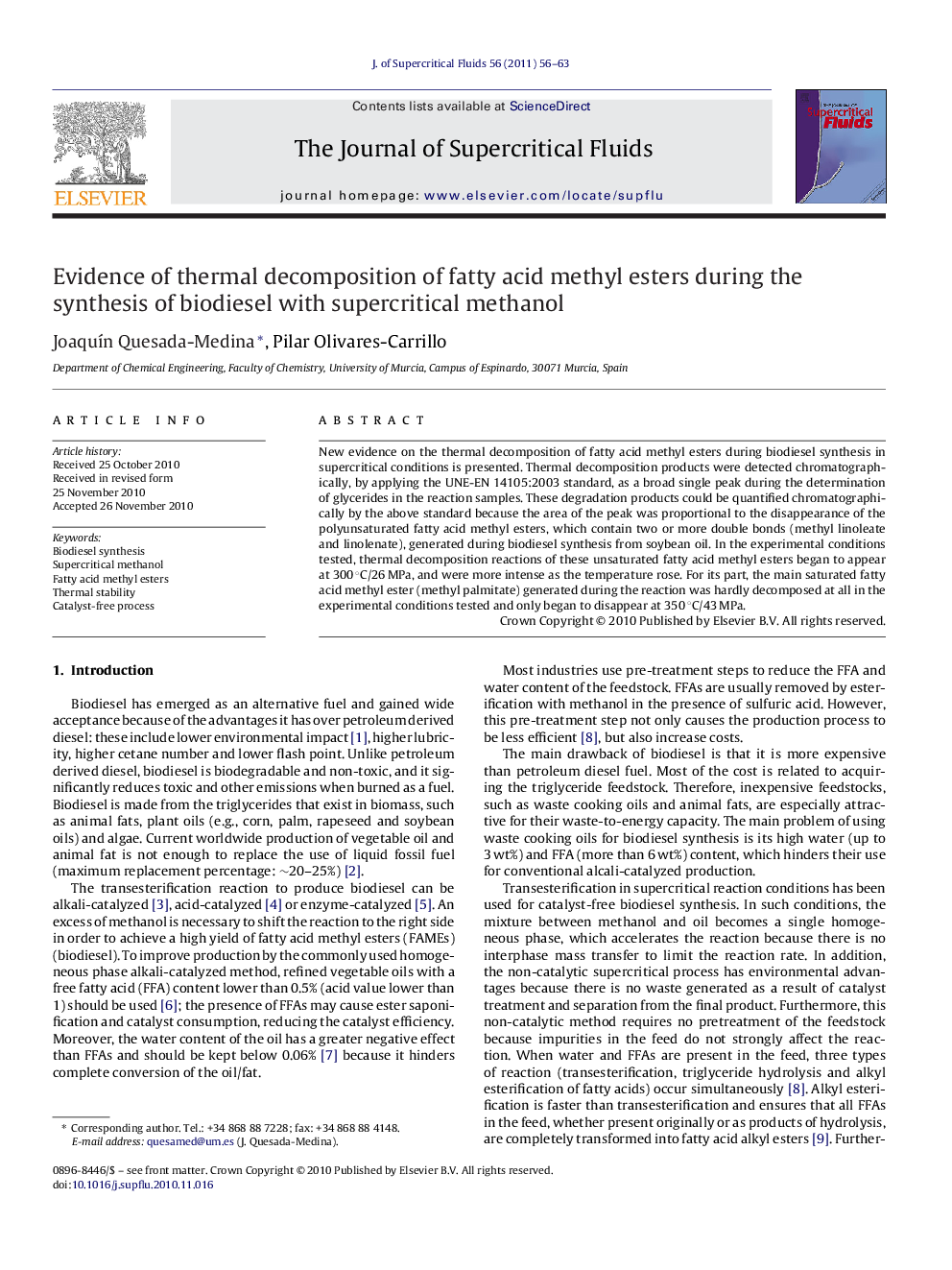| Article ID | Journal | Published Year | Pages | File Type |
|---|---|---|---|---|
| 231520 | The Journal of Supercritical Fluids | 2011 | 8 Pages |
New evidence on the thermal decomposition of fatty acid methyl esters during biodiesel synthesis in supercritical conditions is presented. Thermal decomposition products were detected chromatographically, by applying the UNE-EN 14105:2003 standard, as a broad single peak during the determination of glycerides in the reaction samples. These degradation products could be quantified chromatographically by the above standard because the area of the peak was proportional to the disappearance of the polyunsaturated fatty acid methyl esters, which contain two or more double bonds (methyl linoleate and linolenate), generated during biodiesel synthesis from soybean oil. In the experimental conditions tested, thermal decomposition reactions of these unsaturated fatty acid methyl esters began to appear at 300 °C/26 MPa, and were more intense as the temperature rose. For its part, the main saturated fatty acid methyl ester (methyl palmitate) generated during the reaction was hardly decomposed at all in the experimental conditions tested and only began to disappear at 350 °C/43 MPa.
Graphical abstractFigure optionsDownload full-size imageDownload as PowerPoint slideResearch highlights▶ Polyunsaturated fatty acid methyl esters began to thermally decompose above 300 °C. ▶ Saturated fatty acid methyl esters began to thermally decompose above 350 °C. ▶ Decomposition products were detected chromatographically as a broad single peak. ▶ In the optimal supercritical conditions for biodiesel synthesis thermal decomposition occurs.
